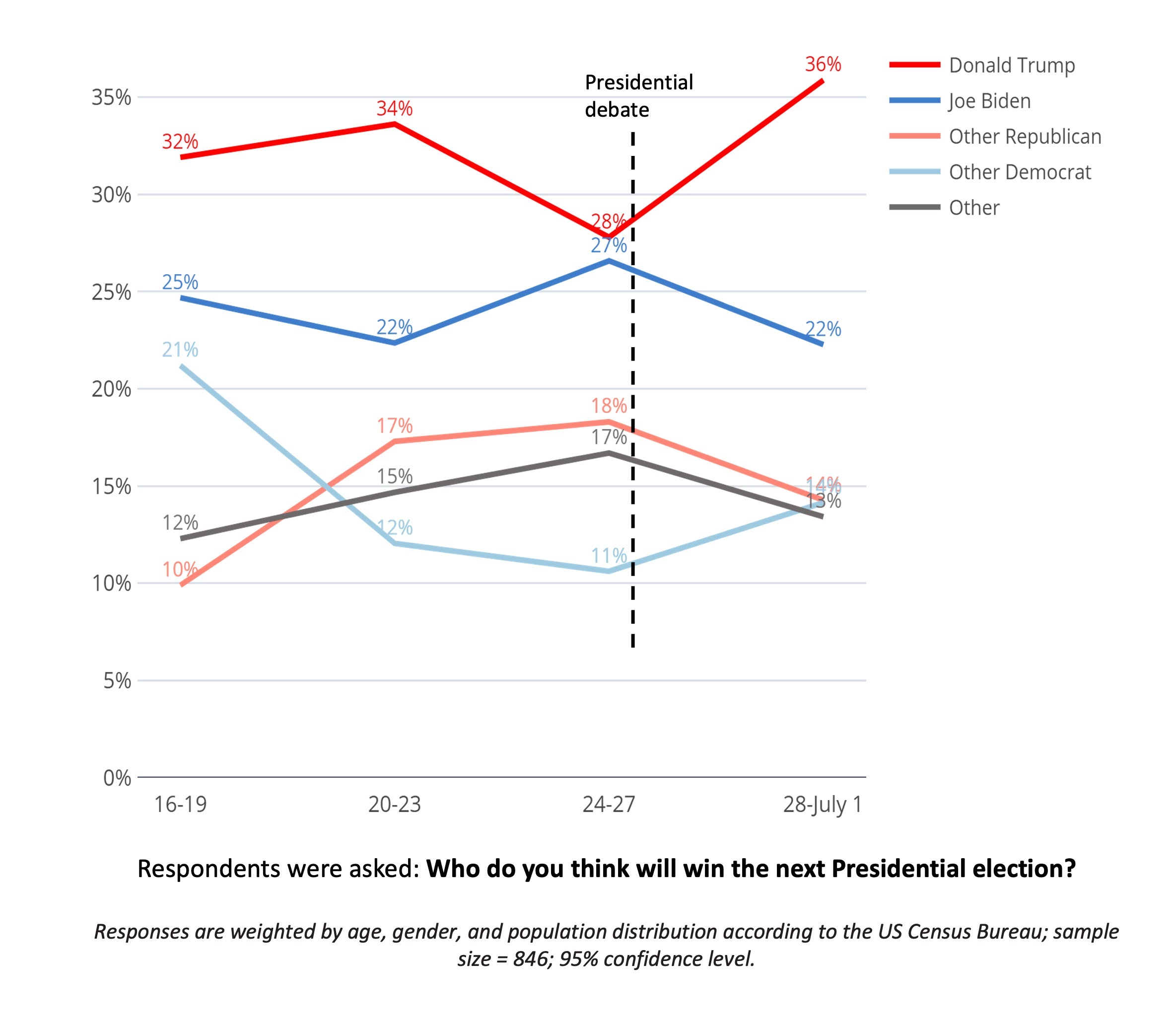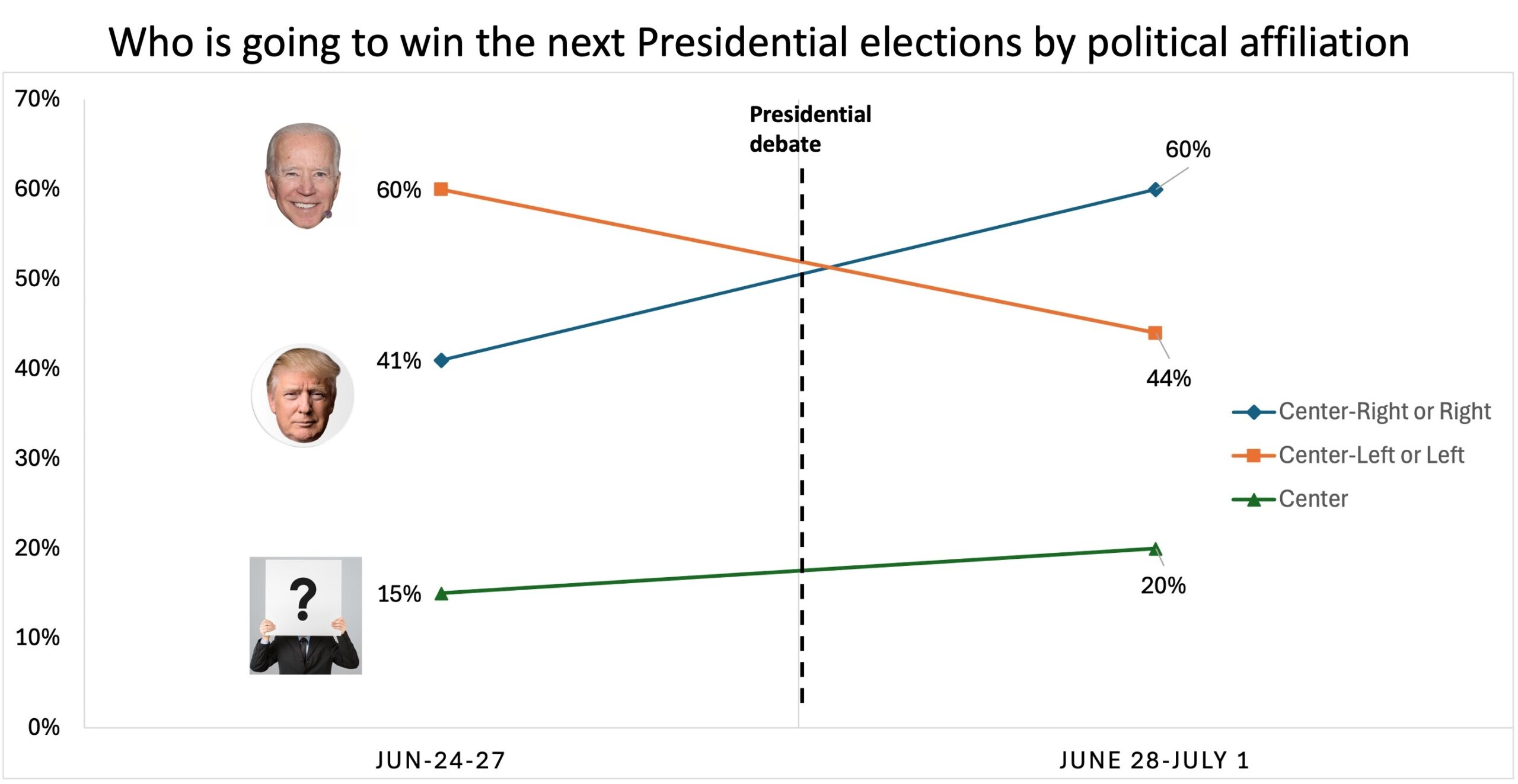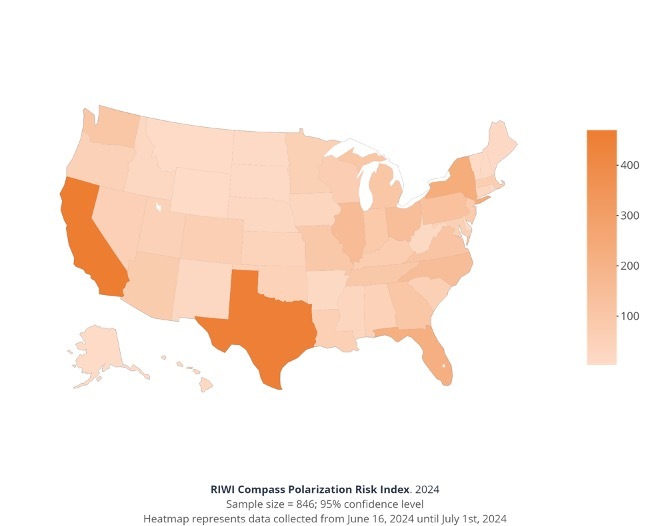By Luan Borges
On June 27, 2024, President Joe Biden and former President Donald Trump participated in their first debate of the 2024 election season.
The debate raised concerns about Biden’s performance among democrats, and various news outlets highlighted his lack of vigor and combativeness, as well as his advanced age. These factors have been pointed to as weaknesses in Biden’s strategy to defeat Trump for a second time.
As a consequence, political pundits have raised questions on the debate’s ability to influence Americans’ public perception of the elections, fueling the so-called double-haters. Swaying these voters, who “ disapprove of both candidates and could play a decisive role in the election outcomes,” was a major goal of both candidates ahead of the debate.
To answer these prominent questions and to offer RIWI clients visibility into the reality of what is unfolding in the U.S., we have been collecting public opinion and sentiment data across all 50 states since January 2024.
Key Takeaways:
Following the debate, public perception of the likely November election winner shifted significantly. Concerns about Biden’s performance were reinforced as the belief that Donald Trump will win increased by 8%, while confidence in Biden’s victory decreased by 5%.

Public perceptions shifted mainly among those on the political spectrum’s extremes—center-left and left, or center-right and right. Before the debate, 41% of self-identifying right-wing voters believed Donald Trump would win the election, rising to 61% after the debate. Conversely, 60% of left-wing voters thought Biden would win before the debate, dropping to 44% afterward. This indicates that Thursday night’s debate boosted confidence in one political group while diminishing it in the other.
Among center-wing respondents, the belief that Trump will win increased slightly from 23% to 28%, while confidence in Biden remained nearly unchanged, moving from 17% to 18%. The percentage of those who think neither Biden nor Trump will win rose from 15% to 20%. This suggests the debate may have disengaged some respondents, adding to the group of “double-haters” who are dissatisfied with both candidates.

Much is at stake with the upcoming U.S. elections in November, both domestically and internationally. Whether Biden’s nomination as the Democratic candidate will be confirmed later this summer remains uncertain. Public perception of his ability to defeat Trump and secure a second term will be crucial for his potential victory.
Methodology
- This data was collected using RIWI’s web-intercept technology (RDIT). RIWI intercepts users on the web by co-opting entry points across the internet and delivering anonymous opt-in surveys. As individuals browse the web, they have an opportunity to land on content that has been placed by RIWI’s web-intercept technology.
- These entry points could have been previous content, inactive domains (such as error 404), ads, in-app opportunities, and more. By utilizing a diverse mix of entry points, RIWI can reach a highly diverse sample of web users.
- This rapid assessment is part of RIWI’s Compass Series of Indexes, specifically the RIWI-Unbound Political Pulse Index, a long-tracker that collects public opinion on a monthly basis within each G7 country as a key indicator of political stability. This data has been continuously collected since May 10, 2022.
- Between June 16, 2024 and July 1, 2024, RIWI collected over 846 responses across all 50 states as demonstrated by the heatmap below.

Luan Borges is an expert in foreign affairs and policy research and Research Manager at RIWI. Luan holds a Master’s degree from the Graduate School of Public and International Affairs at the University of Ottawa, with expertise in election tracking and research methods.
